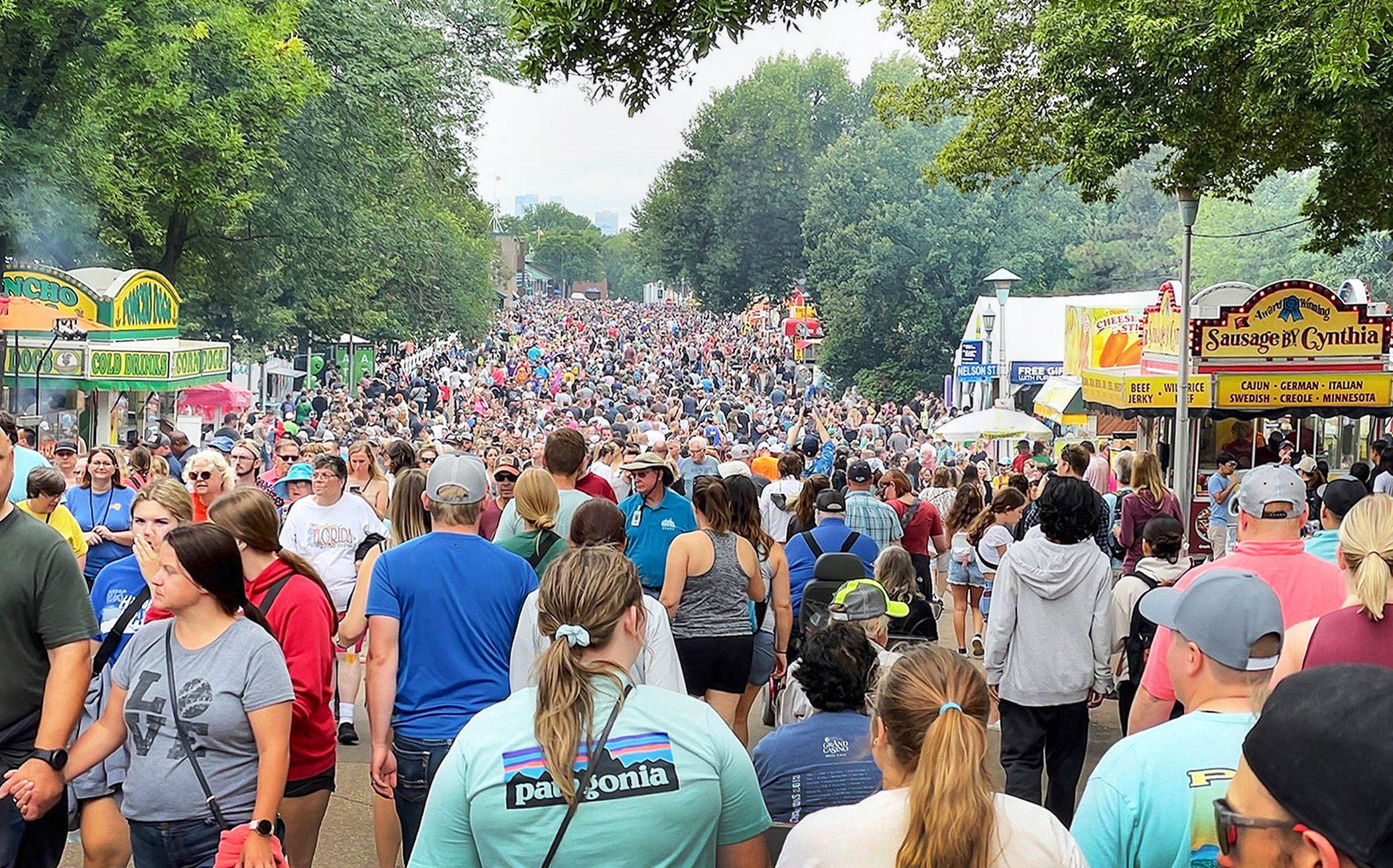Citing yearly gridlock, lawmakers push for more State Fair transportation options

Forget death and taxes. State fairgoers know two things in life are certain: 1) more food than you expect can be served on a stick and 2) state fair traffic is a nightmare.
Brunch-on-a-stick will never go away, but some state leaders are trying to do something about stop-and-go traffic and endless search for parking around the Minnesota State Fair.
The House Agriculture Finance and Policy Committee approved a bill Thursday that would require fair organizers to create a multimodal transportation plan for the 2024 fair to reduce congestion and parking shortages. Sponsored by Rep. Rick Hansen (DFL-South St. Paul), HF3512 was sent to the House Transportation Finance and Policy Committee on a voice vote.
“Everybody loves the fair, but they don’t love getting stuck in traffic,” Hansen said.
Last year was particularly challenging at peak times and many legislators heard about it from constituents. Hansen drafted a bill on the spot with transportation committee chair Rep. Frank Hornstein (DFL-Mpls) and shared it with fairgoers. Hansen wants transportation planning to happen with everyone at the table.
The bill calls for the State Agricultural Society that runs the fair to work with the Metropolitan Council to have a plan in place by Aug. 1. At a minimum, the plan would have to:
- find ways to reduce traffic, congestion and parking around the fairgrounds;
- find ways to improve the transportation experience for attendees;
- double the transit service levels from 2023, including park-and-ride and express buses;
- expand bike storage, including at park-and-ride locations;
- offer better opportunities for ride sharing; and
- detail a communication plan.
Fair and Met Council officials have already been working with each other and other partners on the issue. A suggestion that the state may not need to appropriate any money for the plan got a big thumbs up from Minnesota State Fair CEO Renee Alexander.
An exacerbating issue last year was construction on two roads near the fairgrounds. However, as the fair rebounds after COVID, some workforce issues remain that can cap services, Alexander said. For example, Metro Transit had nine express bus service lots in 2019, three in 2021 and four in 2023.
Rep. Brad Tabke (DFL-Shakopee) appreciates the bill is headed to the transportation committee because he is worried about a potential change that would require a 100% increase in transit service. “I’m concerned we would put all our resources in the fair when people still have to get to work.”
Related Articles
Search Session Daily
Advanced Search OptionsPriority Dailies
Speaker Emerita Melissa Hortman, husband killed in attack
By HPIS Staff House Speaker Emerita Melissa Hortman (DFL-Brooklyn Park) and her husband, Mark, were fatally shot in their home early Saturday morning.
Gov. Tim Walz announced the news dur...
House Speaker Emerita Melissa Hortman (DFL-Brooklyn Park) and her husband, Mark, were fatally shot in their home early Saturday morning.
Gov. Tim Walz announced the news dur...
Lawmakers deliver budget bills to governor's desk in one-day special session
By Mike Cook About that talk of needing all 21 hours left in a legislative day to complete a special session?
House members were more than up to the challenge Monday. Beginning at 10 a.m...
About that talk of needing all 21 hours left in a legislative day to complete a special session?
House members were more than up to the challenge Monday. Beginning at 10 a.m...